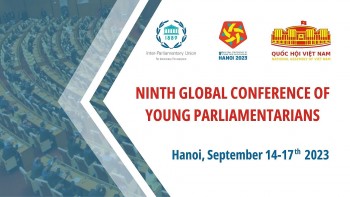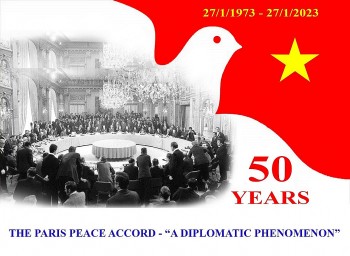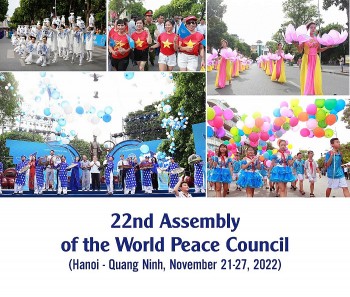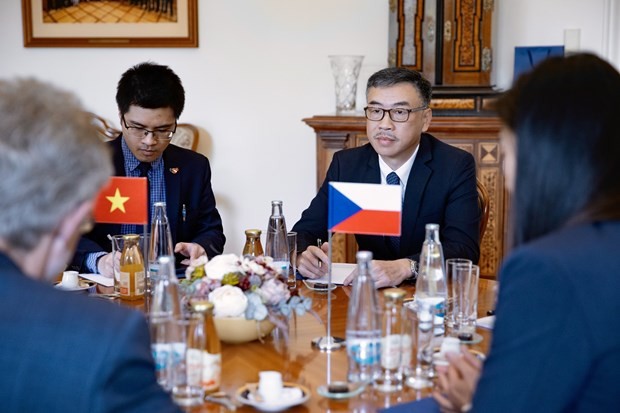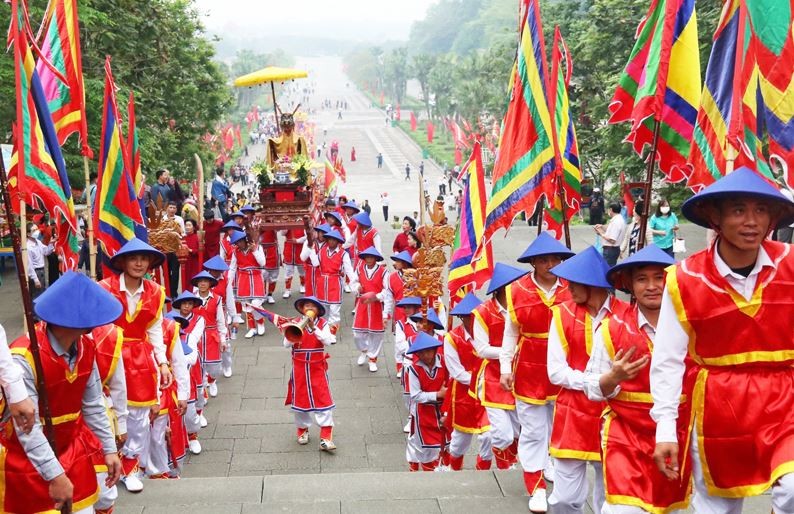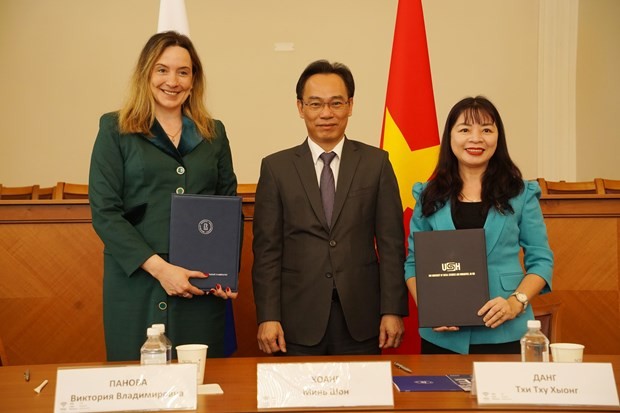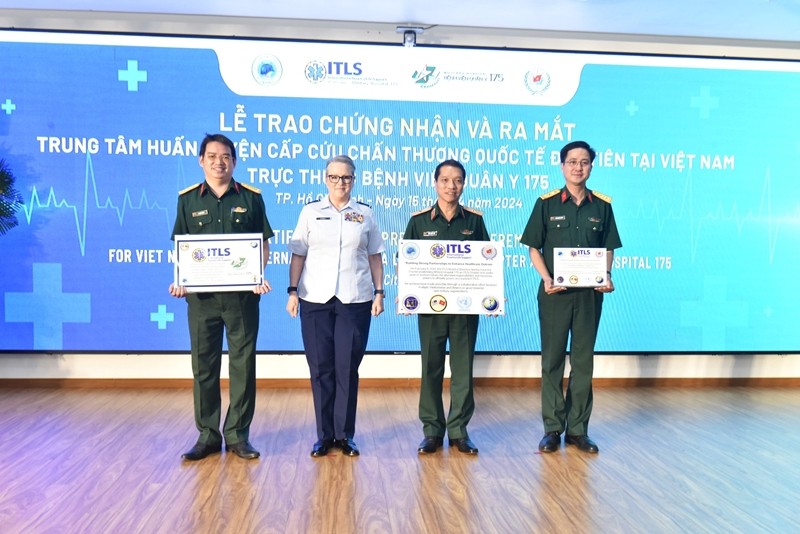Vietnamese literature quietly promoted in US
Over the past few years, several Vietnamese American intellectuals have quietly built the bridges of love, hope, reconciliation and peace between the two countries through literature and culture. Of the intellectuals, Phan Thi Ngoc Chan and Nguyen Ba Chung have made great contributions to making Vietnamese literary works popular in the U.S.
 |
Phan Thi Ngoc Chan and translator Nguyen Ba Chung (right) at the 2012 Vietnam – U.S. Literature Forum. (Source: NDO)
Chan is one of the pioneers in enhancing the interference in culture and literature between Vietnam and the U.S. In recent years, she has been in charge of the collections of books on Vietnam at the Harvard – Yenching library under the Harvard University. She began working at Harvard library in 1974 when she was studying for a master’s degree in Boston city.
She maintained a part-time job in the library even after she graduated and became a teacher in charge of the Vietnamese – English bilingual programme for Vietnamese children in the city. In 1982, Chan officially worked for the library and with her experience and enthusiasm, she was appointed as the curator of the collection of books on Vietnam.
Over recent years, Chan has collected numerous outstanding Vietnamese literary works for the collection at Harvard University’s library. In addition, the collection consists of many valuable documents in the fields of philosophy, history, politics, social sciences, education, arts and language, contributing to promoting Vietnamese literature and culture to international friends, particularly the professors, teachers and students from the University.
The collection was created a few decades ago and has been preserved in optimum condition. According to Dr. Tran Duc Anh Son, from the Da Nang Institute for Socio-Economic Development, Chan helped his group to find the origin of valuable documents related to Vietnam’s sovereignty over the Hoang Sa (Paracel) and Truong Sa (Spratly) archipelagos. They were the French - Chinese Qing dynasty agreement in 1887, the Treaty of Peace with Japan signed by Japan and the Allied Powers in San Francisco (the U.S.) in 1951, documentations on the Germany’s Bellona shipwreck (in 1895) and the Japanese Imeji Maru ship’s wreck (in 1896) near the Hoang Sa archipelago, and material on Japan’s occupation of the two archipelagos during the second world war.
In October 2017, Chan quietly began another important task. She worked with the Director of the National Library to discuss a project of digitising valuable books. She understands that the hot and humid climate in Vietnam is prone to destroying books published many decades and centuries ago. Without digitalisation, the management and use of these books will face many inadequacies. Chan has also worked with the Institute of Han-Nom Studies, National Archives, Hanoi University’s library, Ho Chi Minh City Library and some other domestic units.
 |
Phan Thi Ngoc Chan and poet Huu Thinh visit Vietnam Literature Museum. (Source: NDO)
Like Chan, her husband Nguyen Ba Chung, who is also a poet and translator, has made great contributions to the Vietnam – U.S. relations. In the years immediately after the war against American imperialism, as the relationship between Vietnam and the United States was still tense, poet Chung volunteered to coordinate with the U.S. veterans at the William Joiner centre, under the Massachusetts University, to hold exchange programmes for Vietnamese writers in the country, helping the American public to gain a better understanding of Vietnamese culture. Although being a computer science worker for over 10 years, he has a great passion for literature.
He began creating poems and translating Vietnamese literary works that were created in the 1990s of the 20th century. He is the author of the poetry collections: ‘Nguon’ (Resources) in 2009, ‘Co noi’ (Field Grass) in 1995, ‘Mua ngan’ (Distant Rain) in 1996, ‘Ngo hanh’ (Gate of Kindness) in 1997, and ‘Tuoi ngan nam tu buoi so sinh’ (A Thousand Years Old at Birth) in 1999.
The first literary work that Nguyen Ba Chung participated in the translation of, along with Kevin Bowen, David Hunt and Ngo Vinh Hai, was the novel ‘Thoi xa vang’ (A Time Far Past) by writer Le Luu. Published by the University of Massachusetts Press in April 1997, the book became the first Vietnamese literary work to be introduced to the U.S. after the war in Vietnam. So far, Chung and a number of American poets, such as Bruce Weigl, Martha Collins and Kevin Bowen, have translated hundreds of Vietnamese poets and published eight collections of poems in Vietnam, Japan and the U.S.
He is wholeheartedly devoting himself to projects that promote Vietnamese literature. Currently, he is working with Fred Marchant to translate poems by Tran Dang Khoa and Nguyen Khoa Diem as well as cooperating with Bruce Weigl and Kevin Bowen to translate works by the poets Minh Duc Trieu Tam Anh and Thu Bon.
Nguyen Ba Chung always feels anxious about training a generation of professional translators. He hopes that Vietnam would organise exchange programmes between Vietnamese translators and the William Joiner Institute under the University of Massachusetts. Accordingly, each year one or two Vietnamese translators will study for master’s degree in American literature, while one or two American translators will study at Vietnamese universities.
It can be said that the house of Chung and Chan in Boston city is also home of Vietnamese literature in the U.S. and is full of the patriotic spirit./.
VNF/NDO
Most read
Recommended
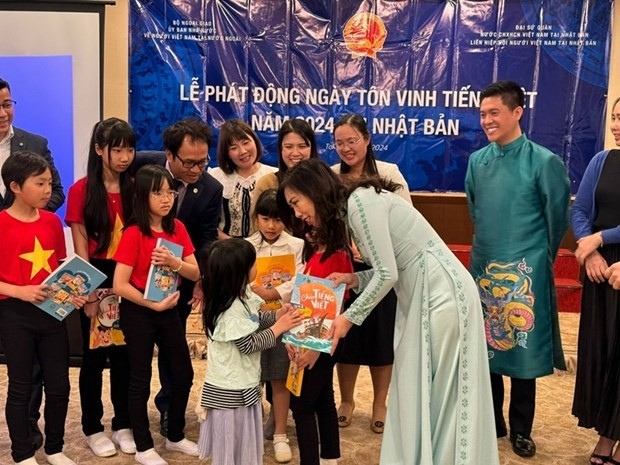 Overseas Vietnamese
Overseas Vietnamese
Vietnamese Language Honoured In Japan
 Overseas Vietnamese
Overseas Vietnamese
“Searching for Ambassadors of Vietnamese Abroad in 2024” Contest Launched in Japan
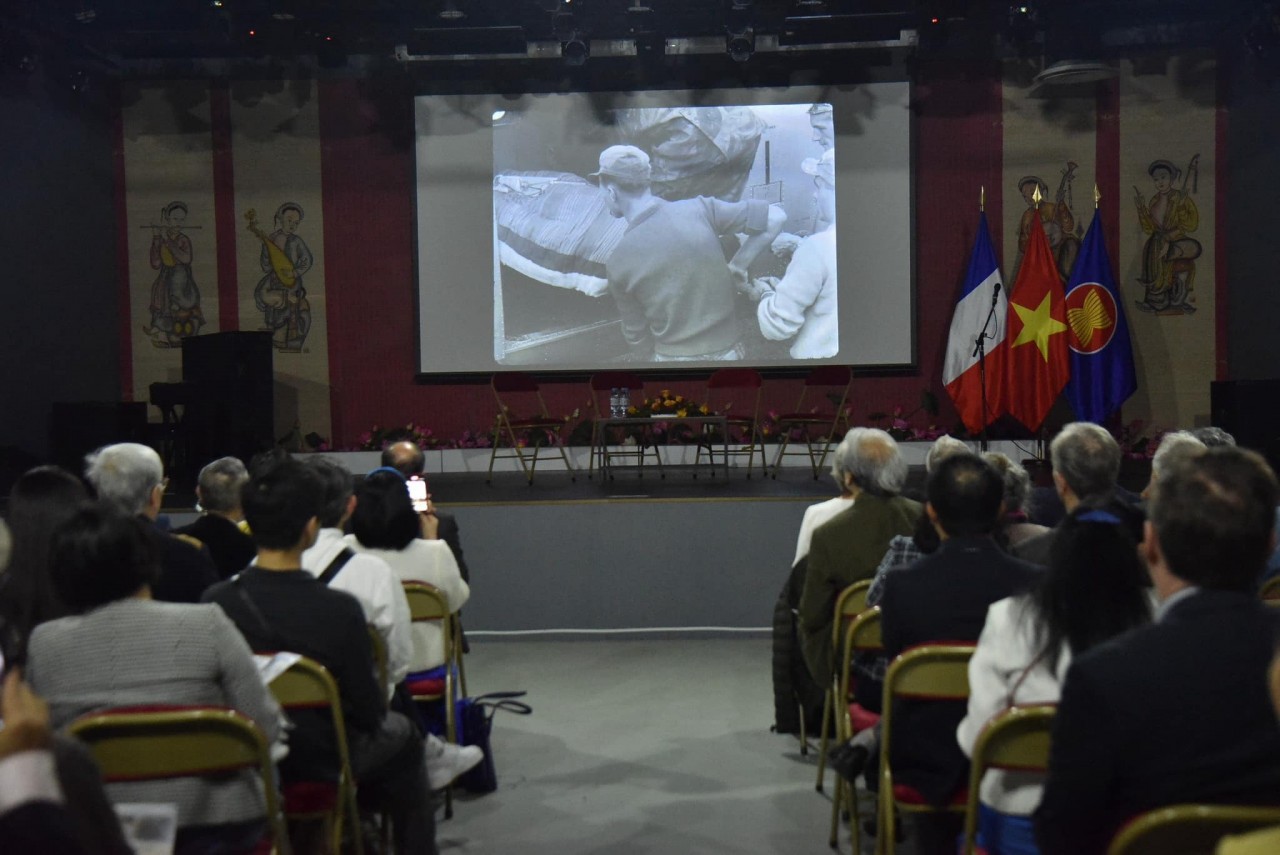 Overseas Vietnamese
Overseas Vietnamese
70 Years of Dien Bien Phu Victory: Exchange of History and Memories in France
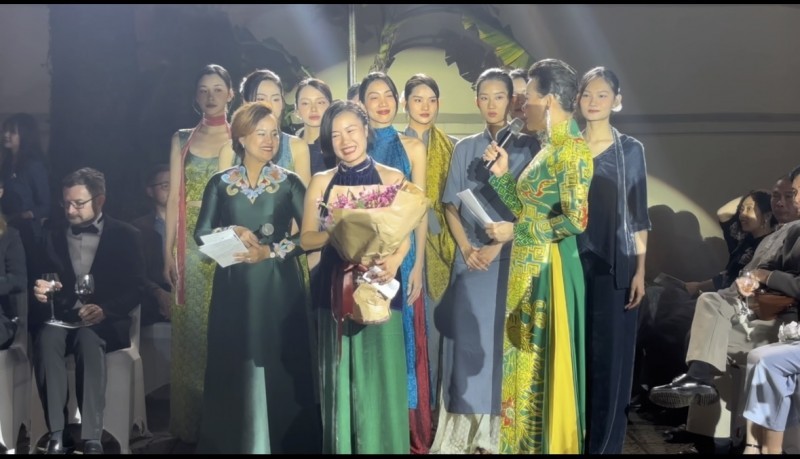 Overseas Vietnamese
Overseas Vietnamese
Viet Designer in the Czech Republic Holds Auction to Raise Fund for Homeland Children
Popular article
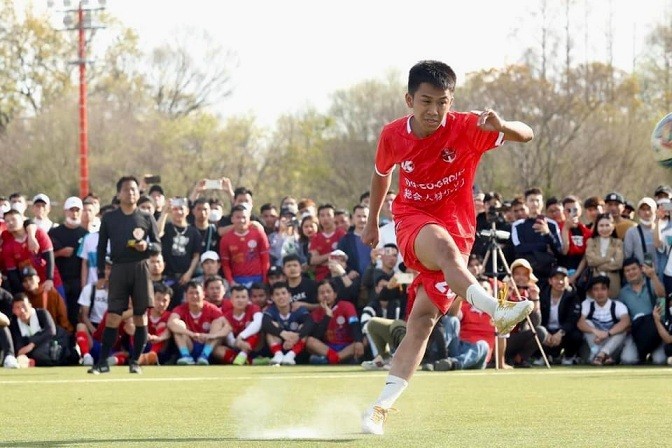 Overseas Vietnamese
Overseas Vietnamese
Football Tournament Held in Tokyo To Raise Funds for A Vietnamese Pagoda
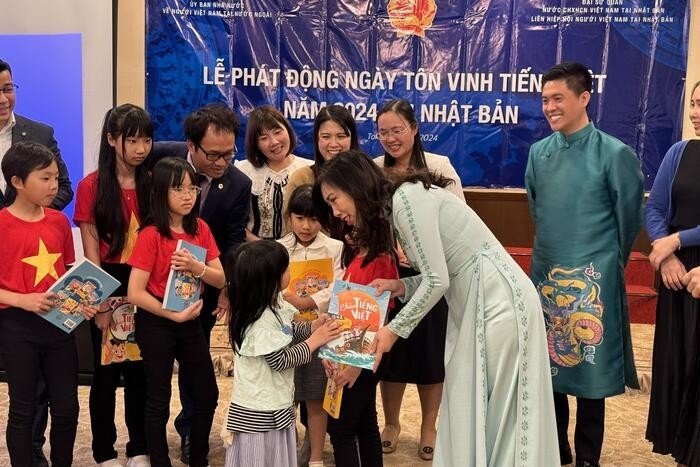 Overseas Vietnamese
Overseas Vietnamese
Preserving Vietnamese Language For Vietnamese's Future Generations In Japan
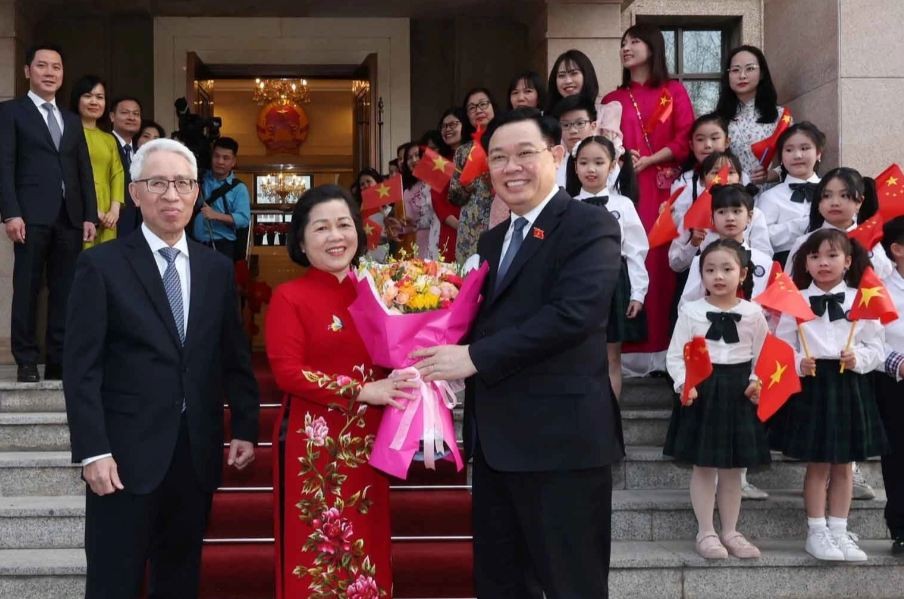 Overseas Vietnamese
Overseas Vietnamese
NA Chairman Arrives in China, Meets Vietnamese Community
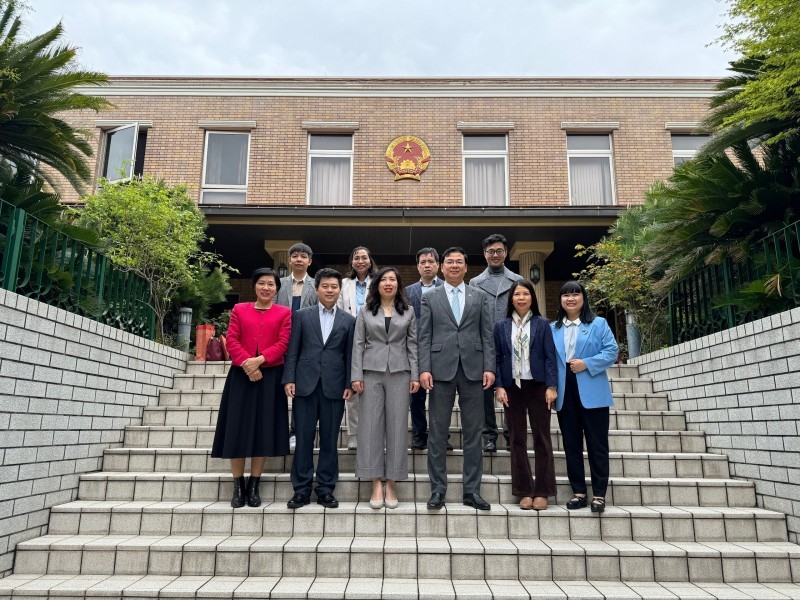 Overseas Vietnamese
Overseas Vietnamese

